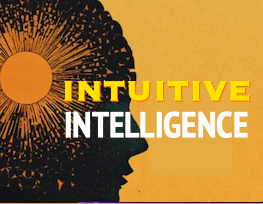 Extraordinary Knowing:
Extraordinary Knowing:
Developing Intuitive Intelligence
by Paul Robear
There’s a quiet power in knowledge that whispers from within.
You know that feeling—that inner sense when you just know something without needing to explain how? You walk into a room and sense something’s off. You meet someone and feel an instant connection—or a quiet warning. You follow a hunch, and it leads you exactly where you need to go.
That’s intuitive intelligence. And we all experience it. It’s not reserved for mystics or empaths. It’s a very real human capacity—something we not only carry but can consciously develop.
The way I think of it, intuitive intelligence moves like a whisper beneath thought as an inner knowing that rises complete, without explanation. It’s memory, emotion, and perception, converging in a flash. Often faster than logic can process.
In a world that often prizes only what can be measured and explained, intuition can is see by some as a fringe idea. But more and more, it’s being recognized as not only valid—but vital.
Think of it as a bridge between mind and heart—where reason meets instinct, and imagination dances with what is real. In that union, we remember our wholeness.
Time and again in my life, I’ve experienced moments of deep knowing—unexplainable, yet undeniable—that shaped major life decisions and redirected my path in profound ways.
For me, developing intuition began with owning it. Acknowledging the gift. Then came the practice: a returning, a learning to listen in quieter ways. Meditation and journaling were early tools that helped open that inner channel. And most importantly, learning to trust—trusting the felt sense, the quiet signals of “yes” or “no” in my body before my mind had made a case.
That journey has deepened through my work with the Cuyamungue Institute. Our practice of Ritual Body Postures is one of the most powerful ways I’ve found to access this deeper intelligence. Through specific postures and rhythmic stimulation, we enter a trance state that opens the subconscious. In that altered state, intuitive insight often arrives—vivid, symbolic, and clear. Not in the language of logic, but in the language of embodied experience.
We believe these ancient techniques, rooted in indigenous tradition and affirmed through decades of research, are tools for remembering who we are at a deeper level. They help us reconnect with the wellspring of intuitive intelligence we each carry within.
Because intuition isn’t just a skill—it’s a birthright.
And in learning to listen, we come home to ourselves.
